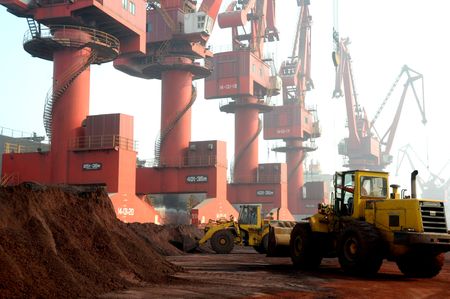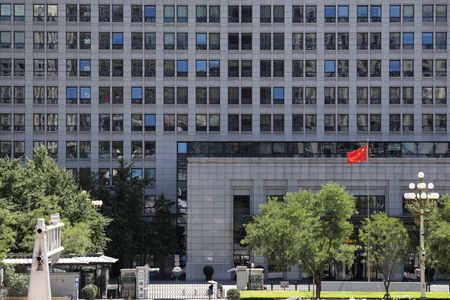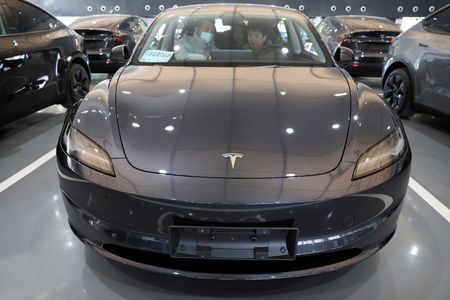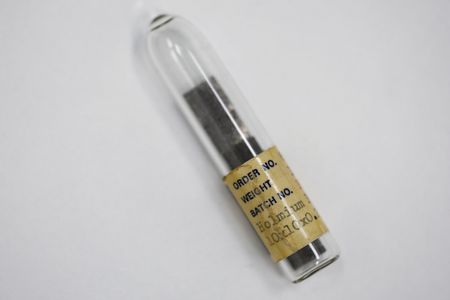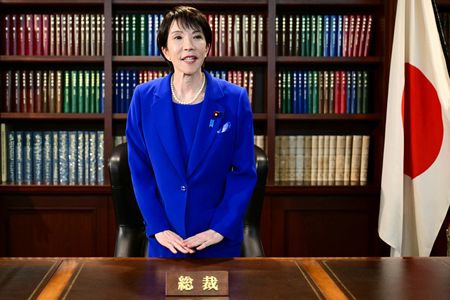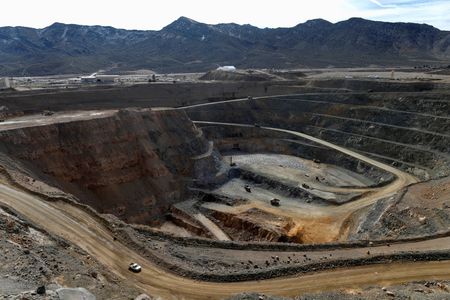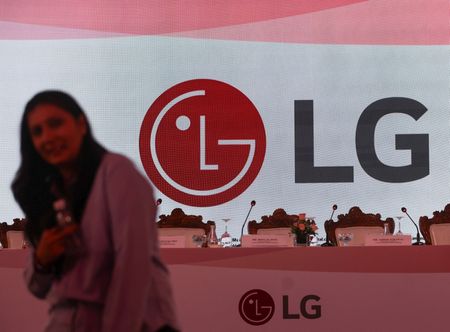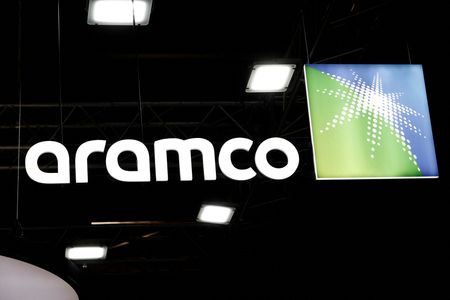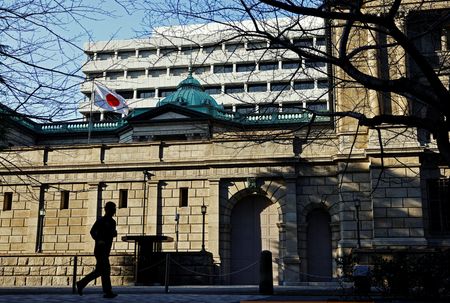BEIJING (Reuters) -China dramatically expanded its rare earths export controls on Thursday, adding five new elements and extra scrutiny for semiconductor users as Beijing tightens control over the sector ahead of talks between Presidents Donald Trump and Xi Jinping.
The world’s largest rare earths producer also added dozens of pieces of refining technology to its control list and announced rules that will require compliance from foreign rare earth producers who use Chinese materials.
The Ministry of Commerce’s announcements follow U.S. lawmakers’ call on Tuesday for broader bans on the export of chipmaking equipment to China.
They expand controls Beijing announced in April that caused shortages around the world, before a series of deals with Europe and the U.S. eased the supply crunch.
“The White House and relevant agencies are closely assessing any impact from the new rules, which were announced without any notice and imposed in an apparent effort to exert control over the entire world’s technology supply chains,” a White House official told Reuters on Thursday.
The new curbs come ahead of a scheduled face-to-face meeting between Trump and Xi in South Korea at the end of October.
“This helps with increasing leverage for Beijing ahead of the anticipated Trump-Xi summit in (South) Korea later this month,” said Tim Zhang, founder of Singapore-based Edge Research.
China produces over 90% of the world’s processed rare earths and rare earth magnets. The 17 rare earth elements are vital materials in products ranging from electric vehicles to aircraft engines and military radars.
Exports of 12 of them are now restricted after the ministry added five – holmium, erbium, thulium, europium and ytterbium – along with related materials.
Foreign companies producing some of the rare earths and related magnets on the list will now also need a Chinese export licence if the final product contains or is made with Chinese equipment or material. This applies even if the transaction includes no Chinese companies.
The regulations mimic rules the U.S. has implemented to restrict other countries’ exports of semiconductor-related products to China.
It was not immediately clear how Beijing intends to enforce its new regime, especially as the U.S., the European Union and others race to build alternatives to the Chinese rare earth supply chain.
“We’re likely entering a period of structural bifurcation — with China localizing its value chain and the U.S. and allies accelerating their own,” said Neha Mukherjee, a rare earths analyst with Benchmark Mineral Intelligence.
In a nod to concerns about supply shortages, the ministry said the scope of items in its latest restrictions was limited and “a variety of licensing facilitation measures will be adopted”.
China’s latest restrictions on the five additional elements and processing equipment will take effect on November 8, just before a 90-day trade truce with Washington expires.
The rules on foreign companies that make products using Chinese rare earths equipment or material are to take effect on December 1. Shares in China Northern Rare Earth Group, China Rare Earth Resources and Technology and Shenghe Resources surged by 10%, 9.97% and 9.4%, respectively, on Thursday.
Shares in U.S.-based rare earths companies jumped as well after New York markets opened, with Critical Metals Corp gaining 17%, Energy Fuels adding 11%, and MP Materials and USA Rare Earth each up 6%.
CHIPS AND DEFENCE
The ministry also said overseas defence users will not be granted licences, while applications related to advanced semiconductors will be approved on a case-by-case basis.
The new rules apply to 14-nanometer chips or more advanced chips, memory chips with 256 layers or more, and equipment used in production of such chips, as well as to related research and development. These advanced chips are used in products from smartphones to AI chipsets that require powerful computing performance.
The rules will also apply to research and development of artificial intelligence with potential military applications.
South Korea, home to major memory chipmakers Samsung Electronics and SK Hynix, is assessing the details of the new restrictions and will continue discussions with China to minimise their impact, its industry ministry said in a statement to Reuters.
Samsung declined to comment. SK Hynix and Taiwan’s TSMC did not immediately respond to questions.
Shares in TSMC rose 1.8% on Thursday, as the company reported forecast-beating third-quarter revenue. South Korea’s financial markets were closed on Thursday for a public holiday.
(Reporting by Beijing bureau; Additional reporting by Heekyong Yang in Seoul, Ernest Scheyder in Houston, Erin Onstad in London and Jarrett Renshaw in Washington; Editing by Christian Schmollinger, Kate Mayberry, Tom Hogue, Mark Heinrich, Jason Neely and Marguerita Choy)

